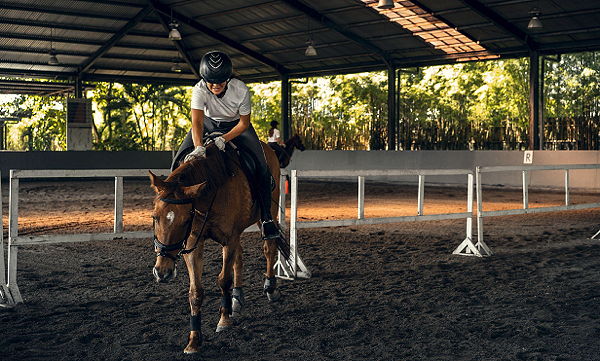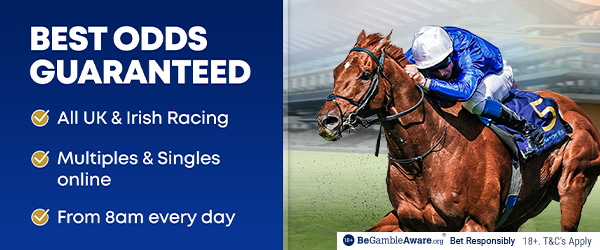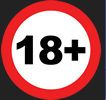 |
RacingBetter News |
| Tuesday 20th September 2022 | |
How to Pick Your Horse and Win at Horse Racing Bet

A blog about horse racing tips along with informative but entertaining concepts.
Horse racing is a lot like poker. The cards are dealt to you, but you still have to play the hand. It's all about knowing what you're looking for and how to use it to your advantage.
If you want to improve your chances of winning at horse racing, you need to know what makes a good horse and how to pick one that will win more often than not.
You can always research the statistics from various sources. You have to do a specific search. For example, a bookie for online betting Singapore may have better odds than those in Tokyo or America, which may affect your winning.
This blog post will give tips on picking your horse and winning at horse racing betting.
Study History and the Head-to-Head Statistics
First things first: study the head-to-head statistics against each other. Look for horses that consistently run better than the odds say they should and for patterns of improvement over time.
Because horses' odds can fluctuate from race to race, there are ways you can use your knowledge of these factors to your advantage when betting on horses. One way is by looking at head-to-head statistics between horses in similar situations (such as two horses competing for first place). If you notice a pattern of improvement over time or consistently better performance against another horse than what would be expected based on their odds, then this might be an indication that they're capable of winning despite their current odds.
If you find two horses with similar records against each other, try looking at their past performance records over longer periods. Doing this helps you see if there is any pattern in which one has been consistently better than another over longer periods than just one race or even several races together at once.
Study the Form
You first need to know the form to understand how to pick your horse and win a horse racing bet.
The form is a record of the recent past performances of each horse. It includes the races they have won, their times in those races, their weight, and age, and any other relevant information. You can use this information to predict which horses will perform well in future races.
Here, it would help if you studied recent highlights of the races each horse has won. What types of competitions did it win, and by how much?
When looking at the form, you must also consider the Horse's Age and sex. Younger horses are more likely to improve over time, but older horses are more experienced. And, male horses tend to be more aggressive than female ones, so male horses may be better for short distances and female horses for longer distances.
The best way to get this information is to look at past performances in official race results and newspapers. You can also find out what place your chosen horse finished in during its last run by talking with others who have been following the sport for years or by searching on the Internet and searching for historical data about your chosen horse.
Course and Distance
How fast is the race likely to be run? Which horses are suited for this pace, and which ones may find it difficult at that speed?
With the course, you will have to consider two main things:
The track - If a horse is going to win, it needs to be able to run on a particular type of surface. A horse that works well on grass will not necessarily perform well on a synthetic surface. This would be especially true if they had raced on natural turf and succeeded.
Weather conditions can make all the difference in racing horses and picking winners in this sport. Rain can slow down horses so much that they cannot catch up with those in front of them, while wind can cause problems for horses who are not used to running in such conditions. Heat can also be a problem if there isn't enough water available at the track during summer months as dehydration can lead to exhaustion and injury."
The length of the race can also greatly impact your betting strategy. If you know that the race is likely to run at a slow pace, you may want to consider backing the horse with the best finishing speed or with proven stamina over longer distances. If it's going to be a fast-paced race, look for horses who have won over shorter distances previously, as they should be able to cope better with that type of pace.
Study the Trainer

Like in soccer, you will pick a team coached by Jose Mourinho or Pep Guardiola rather than some rookie you have never heard of.
The trainer, or jockey's agent, ensures that the horse is fit enough to run and has adequate rest between races. If a horse has been raced too much in the past few weeks, it will not be able to perform well in its next race. Some trainers are known for taking their horses out on a long break between races to get them back into shape and their energy levels up again.
A good trainer knows how much work it takes to prepare a horse for racing and will ensure that every detail has been taken care of before sending their animal out onto the track. This includes ensuring that it is properly fed and watered, as well as having access to fresh air and exercise regularly.
A good trainer will also be able to work with a horse's natural temper and personality, bringing out the best in them. A bad one might use abusive methods that only make a horse worse or even injure them. Knowing who trained your horse can help you determine whether or not they're worth betting on.
Study the Jockey
A great example would be Formula One, where Lewis Hamilton's name will be first on your list when picking favorites to win an F1 race.
The jockey is probably one of the most important factors in picking your horse. A good jockey can make all the difference between winning and losing.
A horse with a bad jockey usually finishes last or second-to-last, while a horse with an excellent jockey usually wins or comes in second. There are many types of jockeys, and they all have different styles during races. Some of these include:
Some jockeys are better at riding certain types of horses, so if you want to win big, try to find out what type of horse he has been riding lately and make sure to bet on him.
When picking a jockey, look at the track record of the jockey riding the horse in question. If they've ridden other horses to victory before, then chances are they'll do it again.
Check for Injury Records for The Horses.
If you're new to horse racing, it's important to understand how horses' injury records can impact their performance. An injury that keeps a horse off the track for six months may not be as devastating as one that keeps them off for six days, but it's still important to know about.
Horses with a record of injuries are more likely to suffer from those injuries again. So, if your horse has had an injury in the past, their chances of having another one rise significantly.
Understand the Odds
You might be the best at picking the winning horse, but if you do not place your bet right, you might end up with dismal winnings or, at worst, losing the wager. Of course, the first thing in this category is picking the best online bookmakers for horse racing and then understanding your odds.
There are three main types of odds: money line, fractional and decimal. A money line bet is what it sounds like—you're betting on whether a horse will win or lose. A fractional bet is also pretty straightforward, as it's about how much money you'll win for each dollar you put down. Decimal odds are a bit more complicated and require some knowledge of mathematics, but they give you a better understanding of how much risk there is in placing a bet before placing it.
Odds are often displayed as a fraction, which might look like this: 4/1. The number on top (in this case, 4) represents the amount you would win if your horse won. The number on the bottom (in this case, 1) represents how much you would lose if your horse lost.
So, if you bet $10 on a horse with odds of 4/1, and that horse wins, you'd get $40 back from your original $10 bet. But if it lost—and we know it probably wouldn't because it's got better odds than that—you'd lose everything: $10.
That's why it's important to understand how bookies set their odds. They're trying to make money off people who don't know what they're doing—like YOU.
Bottom Line
Every sport has special characteristics, and horse racing betting is no different. Whether you are a novice or a professional, there are some basics you should know to have more success in the sport. It's all about having the right information at the right time and knowing how to structure your bets.







